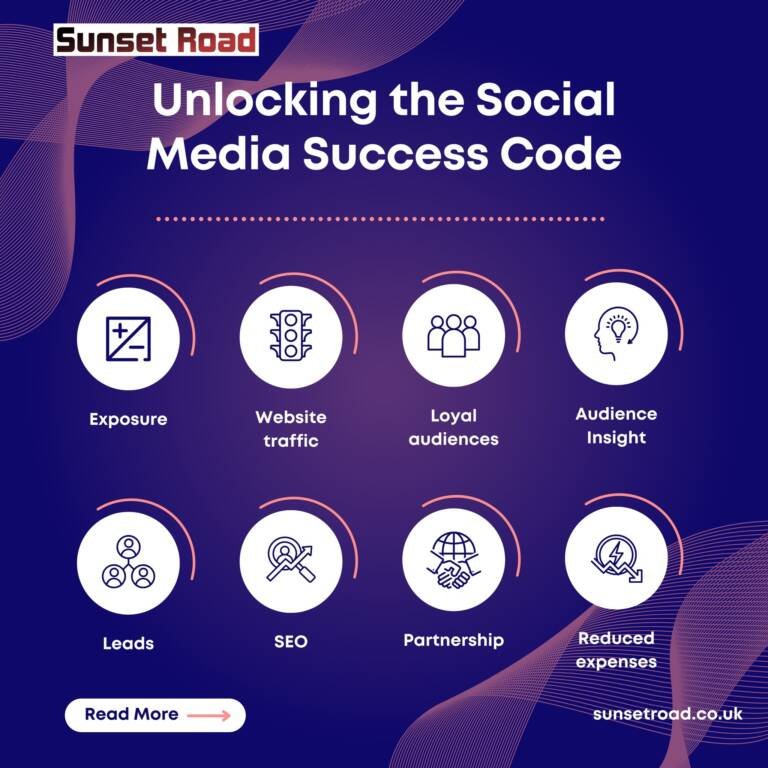Mastering the Art of Engagement for UK Businesses

In today’s digital age, social media marketing has become an indispensable tool for businesses of all sizes, particularly in the UK, where online presence and customer engagement can make or break a brand. As companies strive to navigate an increasingly competitive landscape, leveraging social platforms to connect with their audience has never been more critical. This blog delves into how UK businesses can harness the power of social media marketing to engage effectively with their audience, enhance brand visibility, and drive sustainable business growth.
Understanding the UK Social Media Landscape
The UK boasts a vibrant social media scene, with platforms like Facebook, Instagram, Twitter, LinkedIn, and TikTok leading the charge in user engagement. As of 2024, approximately 57 million people in the UK are active social media users, representing a staggering 84% of the population. This widespread adoption presents businesses with a unique opportunity to reach a broad and diverse audience. However, the key to success lies not just in reaching users but in engaging them in a meaningful and sustained manner.
To achieve this, UK businesses need to understand the nuances of each platform and how they align with their target demographic. For example, LinkedIn is ideal for B2B marketing, providing businesses with a platform to connect with industry professionals and decision-makers, while Instagram and TikTok are more effective for visually-driven campaigns targeting younger audiences. Tailoring content to fit the preferences and behaviors of users on each platform is essential for maximizing engagement and achieving business goals.
Moreover, the UK’s social media landscape is constantly evolving, with new trends, features, and platforms emerging regularly. Businesses must stay abreast of these changes to remain relevant and competitive. For instance, the rise of TikTok has demonstrated the growing importance of short-form video content, particularly among younger demographics. UK businesses should consider incorporating such content into their strategies to capture the attention of these audiences.
Crafting a Compelling Brand Story
At the heart of every successful social media marketing strategy is a compelling brand story. In the UK, consumers are particularly responsive to brands that communicate authenticity, trust, and transparency. A well-crafted brand narrative can set a business apart from its competitors by resonating emotionally with its audience and fostering a sense of loyalty.
Businesses should focus on creating content that reflects their values, mission, and unique selling proposition (USP). This could involve sharing behind-the-scenes glimpses of company culture, highlighting customer success stories, or engaging in conversations about relevant social issues. For instance, a UK-based eco-friendly brand might share its journey towards sustainability, detailing the challenges and triumphs along the way. Such content not only humanizes the brand but also aligns it with the values of its audience.
In addition to storytelling, consistency in messaging is crucial. Every post, tweet, or video should reinforce the brand’s core message and values. This consistency builds trust and helps the audience to identify and connect with the brand on a deeper level. In the UK, where consumer trust can be hard-earned, maintaining this consistency is particularly important.
The Role of Content Strategy
A robust content strategy is crucial for sustaining engagement on social media. UK businesses should aim to create a mix of content types that appeal to different segments of their audience. This could include educational blog posts, entertaining videos, interactive polls, visually appealing images, and user-generated content. Diversifying content not only keeps the audience engaged but also allows businesses to explore different ways of communicating their message.
Consistency in posting is key to maintaining visibility and keeping the audience engaged. Regular posting helps businesses stay top-of-mind for their audience. However, it’s equally important to prioritize quality over quantity. Content that is well-researched, thoughtfully created, and aligned with the audience’s interests will perform better than a high volume of mediocre posts. For instance, a carefully crafted infographic on the latest industry trends might receive more engagement than a hastily posted generic quote.
Additionally, businesses should consider the timing of their posts. For UK audiences, the optimal posting times may differ from those in other regions due to factors like time zone differences and local cultural practices. Analyzing engagement data to determine when the target audience is most active can significantly enhance the effectiveness of social media campaigns. For example, posting during lunchtime or in the early evening might capture the attention of users who are browsing social media during breaks or after work.
Leveraging Influencer Marketing
Influencer marketing has gained significant traction in the UK, offering businesses a powerful way to expand their reach and credibility. Collaborating with influencers who align with a brand’s values and appeal to its target audience can lead to authentic endorsements that drive engagement and conversions.
UK businesses should carefully select influencers based on their relevance to the industry, the demographics of their followers, and their engagement rates. Micro-influencers, who have smaller but highly engaged audiences, can be particularly effective for niche markets. For example, a local bakery in London might partner with a food blogger who specializes in showcasing hidden culinary gems around the city. This partnership would not only introduce the bakery to a new audience but also lend credibility to its offerings.
By partnering with the right influencers, businesses can tap into new customer segments and amplify their message. It’s also essential for businesses to maintain transparency in these collaborations. In the UK, regulations require influencers to disclose sponsored content, and failure to do so can harm the brand’s reputation. Businesses should ensure that all partnerships are transparent and that the content created aligns with their brand values.
Engaging with the Audience
Social media is inherently social, and businesses must actively engage with their audience to build relationships. In the UK, consumers expect brands to be responsive and interactive. Responding to comments, answering questions, and acknowledging feedback—both positive and negative—are crucial for maintaining a positive brand image.
Engagement can also be driven through interactive content such as polls, Q&A sessions, and live videos. These formats encourage direct interaction, making followers feel valued and heard. For example, a fashion retailer might host a live Q&A session where customers can ask questions about the latest trends or upcoming product launches. This not only boosts engagement but also provides valuable insights into customer preferences.
Additionally, businesses can use social media listening tools to monitor conversations about their brand and industry, allowing them to participate in relevant discussions and stay ahead of trends. For instance, a company that monitors mentions of its brand might discover a common customer pain point and use that information to improve its products or services.
Paid Advertising: Maximizing Reach and ROI
While organic reach is valuable, the reality of social media algorithms means that not all content will reach its intended audience without some paid promotion. Paid social media advertising allows UK businesses to target specific demographics, interests, and behaviors, ensuring their content is seen by the most relevant users.
Platforms like Facebook and Instagram offer sophisticated targeting options, enabling businesses to reach users based on factors such as age, location, job title, and even purchase history. For UK businesses, local targeting can be particularly useful for driving foot traffic to physical stores or promoting region-specific products and services. For example, a restaurant in Manchester might run a Facebook ad targeting users within a 10-mile radius who have shown an interest in dining out.
To maximize return on investment (ROI), businesses should experiment with different ad formats, such as carousel ads, video ads, and sponsored posts, while continually optimizing campaigns based on performance metrics. It’s also important to allocate budgets wisely, focusing on the platforms and audiences that deliver the highest ROI.
Analyzing Performance and Adapting Strategies
The dynamic nature of social media requires businesses to continually assess the performance of their campaigns and adapt their strategies accordingly. UK businesses should utilize analytics tools provided by social platforms to track key metrics such as engagement rates, follower growth, click-through rates, and conversion rates.
By analyzing this data, businesses can identify what’s working and what’s not, allowing them to make informed decisions about future content and campaigns. For example, if a certain type of content consistently underperforms, it may be time to revise the approach or shift focus to other content formats. Conversely, high-performing content can be repurposed or expanded to further capitalize on its success.
It’s important to be flexible and willing to experiment with new approaches, whether that means shifting focus to a different platform, trying out new content formats, or refining targeting strategies. In the UK market, where consumer preferences can change rapidly, adaptability is key to staying relevant and competitive.
Conclusion: The Future of Social Media Marketing in the UK
Social media marketing is an ever-evolving field, and UK businesses must stay ahead of the curve to remain competitive. As platforms continue to innovate and user behaviors shift, businesses must be agile in their approach, always ready to embrace new trends and technologies.
By understanding the UK social media landscape, crafting authentic brand stories, and engaging meaningfully with their audience, businesses can harness the full potential of social media marketing to drive growth and success in the digital age. Moreover, with a well-rounded strategy that includes content creation, influencer partnerships, paid advertising, and continuous performance analysis, companies can navigate the complex social media landscape with confidence and achieve lasting results.











